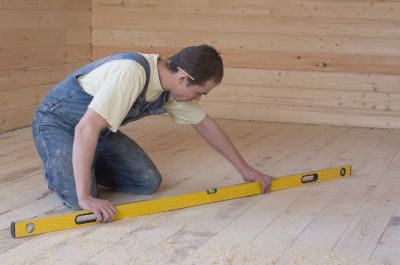Popular Solutions For Subfloor Repair You Can Trust
Find reliable products that make subfloor repairs straightforward, saving time and preventing future damage.
 Subfloor repairs are a crucial aspect of maintaining the structural integrity and safety of flooring systems in residential and commercial spaces. Over time, subfloors can become damaged due to moisture intrusion, wood rot, termite activity, or physical impact. Addressing these issues promptly helps prevent further deterioration and potential safety hazards. Repairing a subfloor typically involves assessing the extent of damage, removing compromised sections, and installing suitable replacement materials to restore stability.
Subfloor repairs are a crucial aspect of maintaining the structural integrity and safety of flooring systems in residential and commercial spaces. Over time, subfloors can become damaged due to moisture intrusion, wood rot, termite activity, or physical impact. Addressing these issues promptly helps prevent further deterioration and potential safety hazards. Repairing a subfloor typically involves assessing the extent of damage, removing compromised sections, and installing suitable replacement materials to restore stability.
Top Overall Option
Heavy-Duty Subfloor Repair Kit
This comprehensive repair kit offers a combination of high-strength plywood panels, sealants, and reinforcement materials designed for versatile subfloor restoration. It provides a reliable solution for various damage types, ensuring stability and durability. The kit includes detailed instructions to facilitate proper installation, making it suitable for both DIY enthusiasts and professionals.
Types of Products For Subfloor Repairs
Plywood Replacement Panels
Pre-cut or custom-sized plywood panels used to replace damaged sections of the subfloor, offering structural support and a smooth surface for flooring installation.
Liquid Floor Patching Compounds
Ready-mixed or powder-based compounds designed to fill cracks, holes, and minor surface imperfections in the subfloor.
Subfloor Sealants and Adhesives
Specialized adhesives and sealants to secure replacement panels and prevent moisture intrusion.
Moisture Barriers and Vapor Retarders
Materials applied beneath the subfloor to prevent moisture vapor transmission and protect against water damage.
Reinforcement Mesh and Fiberglass Tape
Materials used to reinforce patches and prevent cracking or further damage in the subfloor surface.
Underlayment Sheets
Thin layers of cushioning or soundproofing material placed over the subfloor to improve comfort and sound insulation.
Self-Leveling Underlayment
Fluid compounds that create a smooth, level surface over uneven subfloors before installing new flooring.
Concrete Patching and Repair Mixes
Specialized mixes for repairing concrete subfloors or slabs that have cracked or crumbled.
Structural Reinforcement Beams
Metal or wood beams used to reinforce sagging or weak subfloor sections for added support.
Soundproofing Mats
Materials designed to reduce noise transmission through the subfloor, ideal for multi-story buildings.
Floor Joist Hangers and Connectors
Hardware used to secure and reinforce joists and subfloor framing for stability.
Waterproof Membranes
Layers applied to subfloor surfaces to prevent water penetration, suitable for bathrooms and kitchens.
Epoxy Floor Coatings
Durable coatings that can be applied over repaired subfloors to protect against moisture and wear.
Fast-Setting Repair Mortars
Quick-curing compounds ideal for urgent repairs where downtime needs to be minimized.
Popular Choices
Widely used for replacing damaged subfloor sections due to their strength and ease of installation.
Commonly used to smooth out uneven surfaces before laying new flooring.
Versatile adhesive for securing subfloor panels and patches firmly in place.
Popular for protecting subfloors in moisture-prone areas like bathrooms or basements.
Used to reinforce patches and prevent cracking in the subfloor surface.
Frequently chosen for creating a flat surface over uneven subfloors.
Popular for repairing cracks and holes in concrete subfloors.
Commonly used to add cushioning and soundproofing beneath the final flooring.
Often selected for areas exposed to water or high humidity.
Chosen for their durability and protective qualities over repaired surfaces.
Popular hardware for reinforcing the framing structure supporting the subfloor.
Preferred for quick fixes that require minimal downtime.
Increasingly used in multi-story buildings to reduce noise transmission.
Choosing the right products for subfloor repairs is essential to ensure a durable and effective fix. From patching compounds and sealants to replacement panels and reinforcement materials, there is a wide array of options tailored to different types of damage and flooring setups. Proper selection and application of these products can make the repair process smoother and the results more reliable.
When undertaking subfloor repairs, it is important to consider the type of damage, the subfloor material, and the environment. Moisture-resistant products are often recommended in areas prone to humidity or water exposure, while structural reinforcement options might be necessary for severely compromised sections. Additionally, compatibility with existing flooring and ease of installation are key factors to keep in mind. Investing in quality repair products can help extend the lifespan of your flooring and maintain a safe, stable surface for years to come.
Key Buying Considerations
- Assess the extent and type of damage to determine the appropriate repair products.
- Consider moisture resistance, especially in areas prone to water exposure or high humidity.
- Match the repair material to the existing subfloor type, whether wood, concrete, or other materials.
- Evaluate ease of application and whether professional tools or skills are required.
- Select products that provide structural reinforcement if the damage is severe.
- Check compatibility with existing flooring to ensure a seamless repair process.
- Prioritize products with good adhesion properties to prevent future issues.
- Consider environmental conditions such as temperature and humidity during application.
- Review product drying and curing times to align with project timelines.
- Opt for products that offer long-term durability and resistance to wear and tear.
- Ensure the repair products are suitable for the specific subfloor location, like basement or bathroom.
- Look for options that include moisture barriers if water intrusion is a concern.
- Evaluate the cost-effectiveness of repair kits versus individual components.
- Read customer reviews and ratings to gauge product performance and reliability.
- Verify product safety and compliance standards for indoor use.
This page contains affiliate links and may earn commissions from qualifying purchases. The selection of products is based on their features and suitability for subfloor repair needs.
